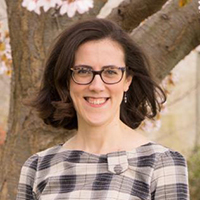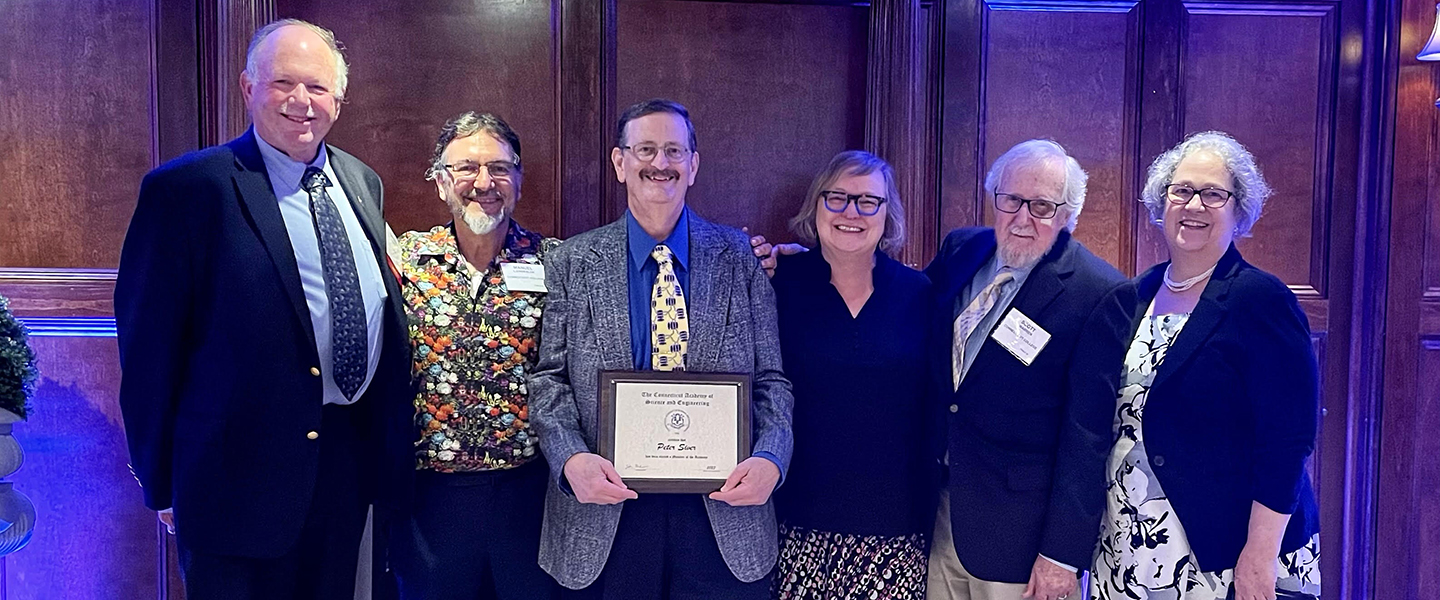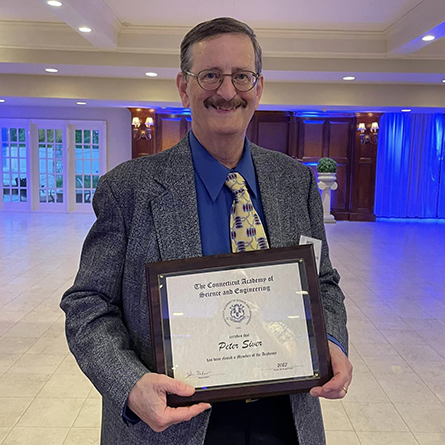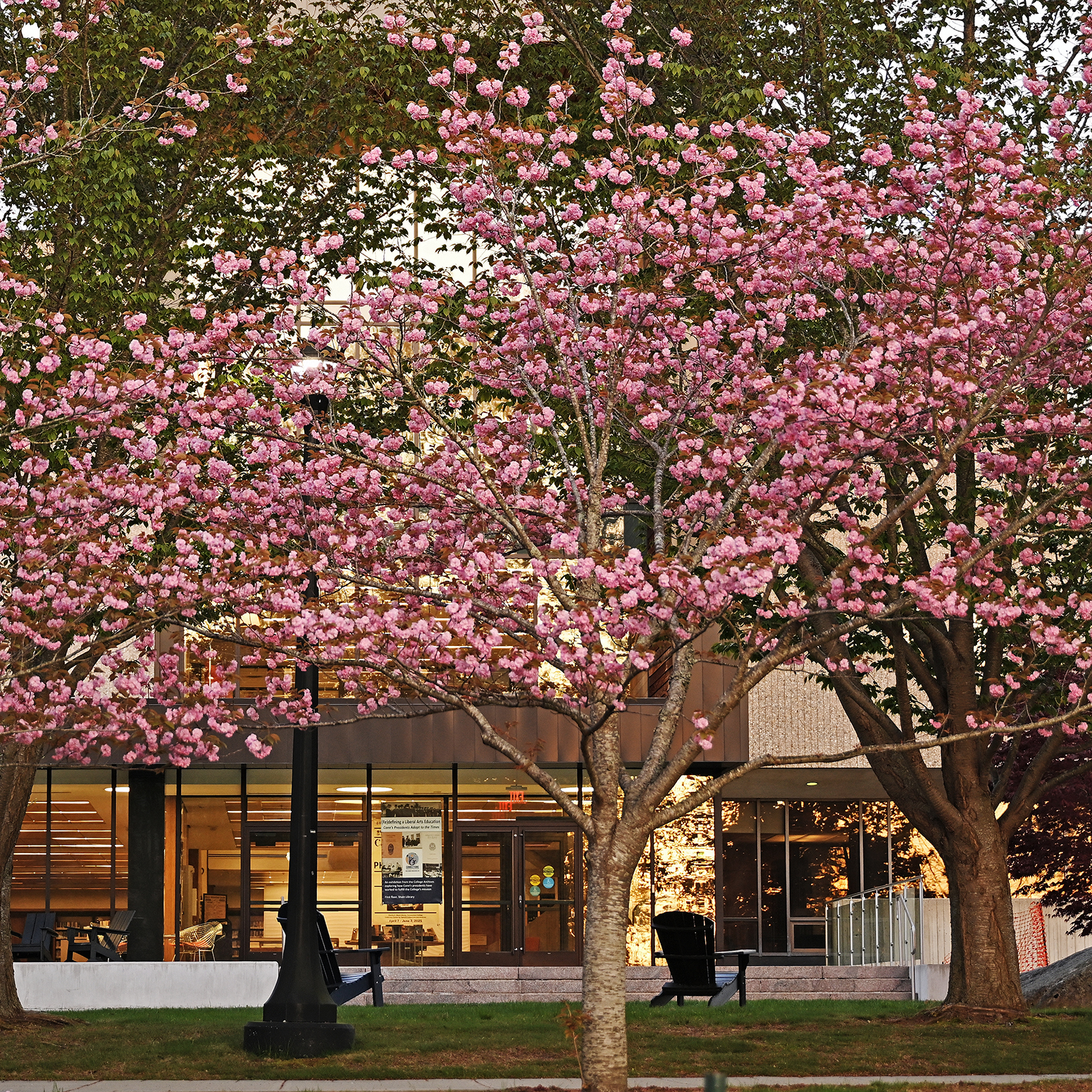
Professor Peter Siver elected to the Connecticut Academy of Science and Engineering
Peter Siver, the Charles and Sarah P. Becker ’27 Professor of Botany and Environmental Studies and director of the Environmental Studies Program at Connecticut College, was recently elected to the Connecticut Academy of Science and Engineering (CASE). The ceremony took place at the academy’s 48th annual meeting and dinner at the Woodwinds in Branford on May 24.
“The election is based on work over a career,” Siver said, “and I was thrilled and honored to be inducted. Most members are from Yale, UConn, the medical and engineering fields, and very few ever from small institutions like Conn. As a result, I was even more honored.”
A noted expert in limnology, the study of lakes, Siver joined Conn’s faculty in 1990 and teaches classes in botany, environmental studies and biology. In past research on New England lakes, Siver demonstrated that southern New England lakes have not, despite a hypothesis to the contrary, become more acidic as a result of acid deposition. Rather, surrounding watersheds help regulate the effect of acid rain on lakes and ponds, in some cases reducing acidity over time.
Siver has written more than 175 peer-reviewed articles and four books and edited two volumes. He has discovered more than 90 new species of chrysophytes and diatoms (microscopic algae), several new genera, a new and rare rotosphaerid, a sponge, and is a co-author on a publication detailing the discovery of an ancient fish.
He has been awarded over 70 grants, including National Science Foundation support amounting to more than $3 million. He has even helped to solve murder cases by analyzing the diatoms in mud samples found on shoes to determine the source of the mud. An episode of Forensic Files was based on a case. In addition, he provided video footage of microscopic life and expertise for a NASA movie on Jupiter.
Siver’s current projects include studies on ancient climates, a synthesis on lakes with a focus on Connecticut waterbodies, and descriptions of a wide array of new organisms. In his new role, he will serve on CASE’s Environment and Education committees.
CASE is a private, nonprofit corporation modeled after the National Academy of Sciences. Its main purpose is to advise state government and industries in applying science and engineering to economic and social welfare, according to the academy’s website.
Current members elect new members based on their accomplishments in science, engineering and/or technology. In particular, scientists and engineers may be considered for membership on the basis of fulfillment of either or both of the following criteria: scientific distinction achieved through significant original contribution in theory or application, and unusual accomplishments in the pioneering of new and developing fields of applied science and technology.
In a letter recommending Siver for membership in CASE, Alan L. Baker, emeritus associate professor of biological sciences at the University of New Hampshire, said his former graduate student “has contributed greatly to the sciences of both limnology and phycology and continues to make his mark with outstanding research.”
Charles Yarish and Gregory Anderson, both professors of ecology and evolutionary biology at UConn, also contributed letters of recommendation. Yarish wrote that Siver’s expertise in freshwater science, work as an educator and scholar and service record “bring a rare combination of skills to CASE,” while Anderson called Siver “the kind of person that CASE tries to identify to promote the key roles of science and engineering in Connecticut.”
Read more about Siver's work in CC Magazine.


